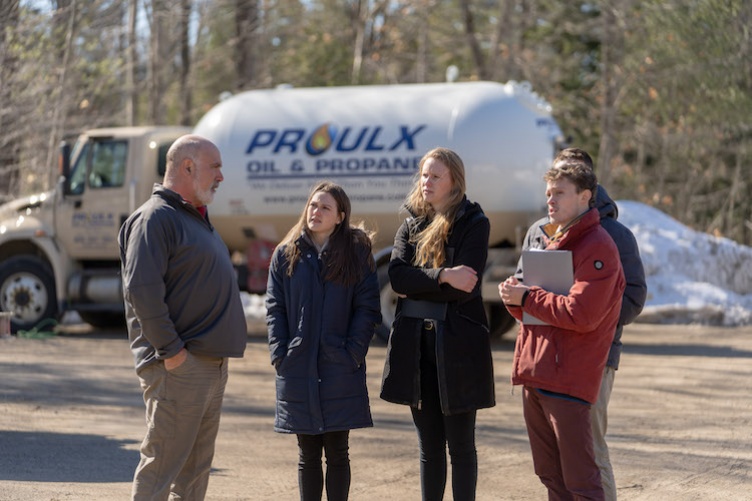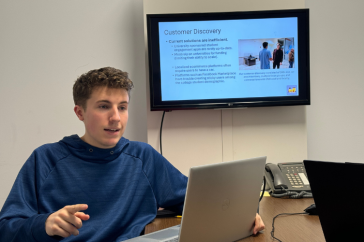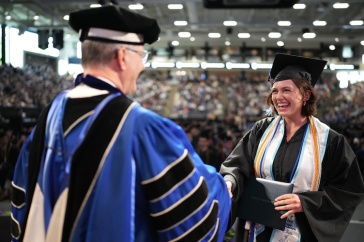
“The level of understanding of these students was remarkable….I would welcome any of the team members to become a full-time employee with our company!”
—Jim Proulx, President/CEO, Proulx Oil
When students have the chance to put what they have been taught in the classroom to work in solving real business challenges authentic learning takes place. They must manage not only the problem served, but also client expectations, unforeseen hurdles, budgets and surprises along the way.
At Paul College, real-world learning is central to the mission. One core program that supports this is the Paul Projects program that pairs undergraduate and graduate students with regional for-profit and not- for-profit businesses to work on a semester-long project. The student teams work with an organizational lead, define the scope of the problem and what the organization hopes to learn, then get down to business. At the end of the semester they present their findings.
It’s a win-win for both the students and the organizations they partner with.
“The corporate consulting project was a terrific way to cap off the MBA experience at Paul College,” says Robb Atkinson ‘19G, strategic account director at Millennium Agency. “I was able to take my classroom training and apply it to real-world problems and situations. This type of experience is invaluable because it allows you to network with business executives and potential hiring managers.”
Atkinson and several students worked with the City of Rochester this spring to develop an Opportunity Zone prospectus. Their research showed how these zones–a community investment tool to encourage long-term investments in low-income urban and rural communities nationwide–could be transformative for the city.
It’s a win-win for both the students and the organizations they partner with.
Lindsay Sutton, AVP, digital strategy lead at John Hancock Financial Services and a former student in the Marketing Workshop Capstone Course, can speak to the benefits on both sides on the Paul Projects program.
“Capstone serves as an amazing foundation for building a career in marketing or advertising. As a student you don’t realize how important the collaboration between the different capabilities and departments are, and this class sets that up perfectly,” says Sutton.
“I remember landing my very first job, at a startup, and one of the pieces of feedback I received after the interview process was that they were impressed by my “real-life” experience. Experience that was, in fact, my Capstone project—a project I referenced in that interview.”
Peter Mascucci, principal lecturer in marketing, connected his students with Sutton for a variety of John Hancock projects this spring focused on branding product lines.
“The work they did was tremendously helpful as it made our teams think about our marketing challenge in a different way,” Sutton says. “We are often caught up in the day-to-day and don’t have as much time as we’d like to take a step back. Working with the students gave us time to pause and really reflect on the work we do and where we could take it next. Also, hearing directly from a Gen Z group is critical—the whole semester felt like an ongoing focus group and that was priceless.”
















































